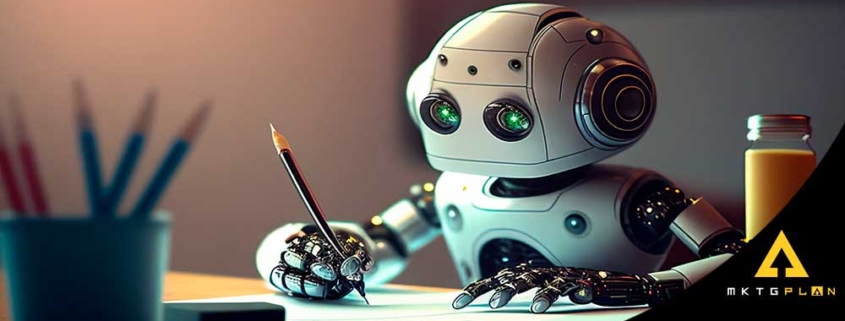Master These 11 Essential Skills for Success in the AI Era
Artificial Intelligence and the Skills that Give Humans the Edge
There is an ongoing global conversation concerning artificial intelligence (AI) and its potential to replace human employees. From writing code to filing tax returns, AI appears to be growing ever more competent. With the release of ChatGPT in 2022, this conversation gains further relevance.
Yet humans still hold several unique advantages in the working world. This article aims to highlight the specific merits of human skills, which are likely to remain superior to AI capabilities for the foreseeable future. Additionally, we’ll provide insights on how to improve your essential abilities to remain competitive in the evolving job market.
Essential Skills when Working with AI
If you incorporate AI tools within your professional responsibilities, there are particular skills critical to maximizing the potential of these technologies.
Intellectual Curiosity
Intellectual curiosity refers to the innate desire to dig deeper, to question and learn more about a given topic. Within a professional context, this soft skill is crucial when analyzing the data generated by AI.
By examining beyond the surface-level data, you’ll be better able to utilize the information produced by AI to meet your specific objectives. Intellectual curiosity can unlock creativity and inspire innovative solutions, pushing you past your comfort zone and enabling you to adapt to untested yet effective methods.
Adaptability
As the business landscape continues to evolve, so does the necessity to adapt swiftly to changes. This is true regardless of whether AI is involved in your work or not.
Being adaptable presents various career opportunities, demonstrating your leadership skills and versatility to potential employers. It also allows you to try out new strategies and show your analytical acumen and determination, further enhancing your employability.
Objectivity
A common misunderstanding about AI is its perceived objectivity. However, humans created AI tools, which means they also carry some of the creators’ biases.
Holistic understanding is vital when using AI. Understanding the relationship between the components of a system enables you to perceive how your tasks contribute to the overall goals of a company. It also allows better alignment and communication among teams, promoting cooperation towards shared objectives.
Ability to Write Good Prompts
The capacity to craft effective prompts is fundamental to using generative AI effectively. The more precise and clear your prompts, the better the output from your AI tools will be, catering to your needs in the most efficient manner possible.
Skills AI Can’t Replace
Despite AI’s impressive capabilities, there are fundamental human skills that it can’t replicate.
Critical Thinking
Critical thinking is vital in various fields, including business, law, and medicine. While AI provides excellent data analysis, it cannot make well-informed decisions based on the data.
Empathy
Empathy is essential to communicate effectively, particularly in challenging situations. Companies and careers that require empathetic communication extend across numerous industries.
Emotional Intelligence
Understanding, managing, and responding to your own and others’ emotions is another area where humans have the advantage over AI. Emotional intelligence can help maintain harmony in teams, foster innovation, increase productivity, and enhance customer relations.
People Management
Managing people is a complex task that encompasses the hiring, training, leading, and developing employees. It requires creativity, emotional intelligence, and strategic thinking – traits that AI lacks but humans can possess through experience over time.
Creativity
AI can generate outputs following the instructions it has been programmed to do, but it cannot create brand new ideas or innovate. Human creativity, on the other hand, is spontaneous and driven by imagination and inspiration.
Strategic Thinking
While AI can automate many tactical tasks, the larger strategy is, more often than not, created by human employees. The construction of this strategic plan demands the application of skills that AI currently cannot mimic.
Enhancing your Critical Thinking Skills
Critical thinking involves scrutinizing information based on hard evidence, allowing a more profound understanding that can facilitate efficient problem-solving and decision-making. Taking online courses, practicing active listening, asking questions, questioning your biases, and seeking diverse opinions can help boost your critical thinking capabilities.
Taking Online Courses
Online courses are a convenient way to improve your critical thinking skills. For instance, HubSpot Academy’s Critical Thinking course provides comprehensive training on thinking dispositions, learning styles, and cognitive biases.
Practicing Active Listening
Active listening involves paying full attention to what a speaker is saying. It aids in understanding different perspectives better.
Asking Positioning Questions
When you are presented with new information, ask questions to clarify the details. Consider the source, its credibility, the aim of the details, and any missing aspects.
Questioning Your Biases
To ensure that your conclusions aren’t influenced by your preferences, reflect on your assumptions. Evaluate if there are any missing perspectives, unconsidered variables, or unchecked angles.
Seeking Diverse Opinions
Diverse opinions can offer you a broader understanding of a situation. It helps to challenge your thinking and widen your knowledge.
AI Won’t Replace Humans Possessing the Right Skills
AI is undeniably on the rise, but it’s not yet at a stage where it can replace humans in all jobs. Human skills such as critical thinking, emotional intelligence, and creativity will remain irreplaceable.
Understanding how to leverage AI tools in synch with these human skills will enable you to deliver the best output, ensuring your continued relevance in the ever-evolving job market.
Conclusion
In this digital era where AI advancement seems inevitable, it becomes all the more crucial for humans to leverage their unique abilities to not only coexist with AI but also thrive in the work environment. The combination of unique human skills and efficient AI tools can bring about a productive work dynamic, enhancing the overall productivity and innovative capacity of companies.
At MKTG Plan, for instance, we utilize the power of AI to improve our website design services and SEO strategies. Yet, we equally value our human workforce and the distinctive skills they bring to the table.
AI may be powerful but it lacks the human skills of creativity, adaptability, empathy, and strategic thinking. These are the elements that add a human touch to our work, making it more relatable and impactful. So, even when using AI for tasks like SEO optimization or website design, the final decision making and project overview are handled by our team of skilled professionals.
To stay relevant in this transforming job market, it is essential to constantly enhance and adapt our skills. Continuous self-improvement and lifelong learning are key. Courses, webinars, mentorship programs, and workshops can play an instrumental role in refining these skills.
Remember, artificial intelligence is a tool designed to assist us, not replace us. Instead of fearing its potential, we should aim to create a symbiotic relationship where AI aids in automating repetitive tasks and humans use their inherent skills to perform strategic and creative roles.
In conclusion, the rise of AI should not be a cause for apprehension but rather an opportunity for us to explore uncharted territories, innovate, and transcend the boundaries of what was once imagined possible. With the right mindset, preparedness, and adaptive skills, we can undoubtedly steer towards a future where AI and humans work in harmony, complementing and enhancing one another’s capabilities.



